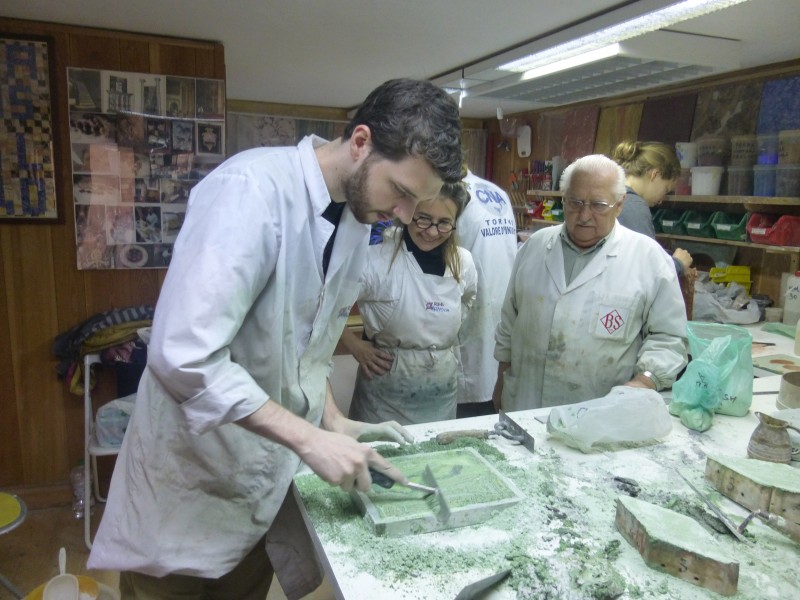
“With many City & Guilds Conservation graduates in various institutions across London and the country, the course is particularly valuable as it has a good reputation and provides opportunities to meet and work with professional conservators”
Why did you chose conservation?
I had been working as an assistant frame restorer and gilder in my family restoration business for about five years, but I wanted to expand my knowledge of the field and give myself a broader and more informed view that would allow me to work more independently.
I believe Conservation as a subject is important to preserving culture and heritage for future generations, so that we can see how art changes and evolves over time. As conservation has developed we have discovered new materials and methods for working on objects that allows their history to be preserved without compromising their integrity and the nature of the work involved in creating them.
What did you appreciate most about the course?
One of the highlights of the course was to be given the means and opportunity to learn traditional carving techniques combined with modern material science, learning about the context of how they relate to each other.
Throughout the course you learn transferable skills and get practical hands-on tuition time with different materials, continuously learning new techniques. There were supervised and self-guided practical conservation projects working on a variety of objects. Some of my favourite and most memorable projects include; cleaning an antique flintlock pistol, reassembling a broken silver-gilt mirror and laser cleaning a plaster bust. Along with group and independent research projects that are also a key component; comparing consolidation mediums for gesso, cross-sectional microscopy, and the ethical process of restoring a public stately home post-fire.
I received a bursary in my final year, providing help to cover my tuition fees. It was the busiest time of the course for me, and this allowed me to concentrate on my thesis and dedicate myself fully to completing my practical work.
With many City & Guilds Conservation graduates in various institutions across London and the country, the course is particularly valuable as it has a good reputation and provides opportunities to meet and work with professional conservators.
What did you progress to do after graduation?
After graduating I was offered employment working for the Royal Collection Trust, cataloguing their picture frames. Through my degree I was supported in securing this job by having a practical understanding of the materials and techniques used in the objects creation as well as a sound knowledge to identify style and age, describe ornament and perform condition checks on the objects.


